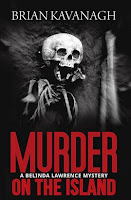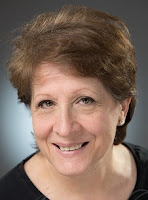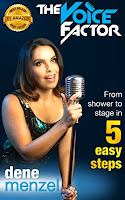Welcome again to another edition of The Author's Journey.
I am writing this as part of my Master of Arts (Writing) under the subject PWR70002 - Online Writing and I want to share with emerging writers as well as those who are keen to further their own writing.
So here I am, literally. I have an idea - and I often have a thousand ideas, but where do I begin? How do you turn that light bulb above your head into your next dynamo book? Well I thought I'd ask a few experts. I dragged a few friends in this week to help answer this question of 'where do I begin?"
I will share with you some of their processes for that very first step.
Mike Covell, a fellow Ripperologist and historian shares this with us:
Depends where I am. I always have a tablet with me, so sometimes it goes into a memo, If I don't have a tablet, I use my mobile, if I am at the laptop, I use that. We have a cloud, so it all goes into the home pc for further use. A lot of my newspaper story ideas come at night when I am in bed, so I usually wake up, jot them down, then check the pc in morning. Before that I used a pen and pad, and I still keep one in my bag or on my desk at all times. I also keep all my old notes in box files.
Musician and author Peter Altieri explains:
I like to let the idea percolate in my head for a while. It is so raw in the early stages, that for me at least, it takes time to form. Once that starts, then I like to do at least a rough outline. Depending on what I'm doing at the time, I would most likely keep it warm until I am ready to start working on it. Like most of you, I usually have several projects going on at the same time.
Philip Bradbury, author of 53 Smiles went into a fair bit of detail that goes beyond that first step of idea from head, but brings with him some valuable advice;,
I jot down the idea - usually at around 3.00 am they come - and leave it beside my bed for 3 days, the time a Lakota elder told me that spirit needs to grow it. After the 3 days, I take myself off to a cafe or somewhere else quiet and I WRITE ... I just let it all out, whatever comes to mind, vomit on paper. Sometimes it's that exact idea, fleshed out, and sometimes it's a totally different idea. By the end of that I will have around 3,000 words and the inspiration to carry on ...
Amy Wright is a dear friend (that photo at Belanglo is of us) and also the author of the Murder Library and Serial Killer GPS app. She posts biographies and articles on serial killers every single day (and I highly recommend you clicking her name and joining the group). Though she doubted her status as author, I think she is one of the prolific writers in our genre.
I always have my iphone and/or my iPad with me. I immediately go to 'Notes' and jot down bits and pieces. If it's a link that's given me the inspiration I'll jot that down too. I put all the pieces together when I have time.
 Kam Newton recently released her debut book, His Beautiful Nightmare. I am pleased to have been a part of its launch and happy to have her here sharing her advice as an emerging author,
Kam Newton recently released her debut book, His Beautiful Nightmare. I am pleased to have been a part of its launch and happy to have her here sharing her advice as an emerging author, I have my notebook j write down new ideas with but if it's a story in in the middle of writing already I have a document just for random paragraphs or ideas I've written. I have a truly TERRIBLE memory, people's names, days of the week etc but my story plots I never forget. Though I have forgotten timelines pretty easy
Gone are the days of little handheld recording devices, or so I thought. Author John Foxjohn, is keen to share that
"I carry a small digital recorder with me. I record my thoughts."
I think this is often a better idea that writing things down. Sometimes ideas can be so fleeting and typing/writing can be so laborious that it is good to just talk to the little machine. I have done this on many occasions often when driving. I press record and start talking and recording the ideas that come to me.
 Author of the Dead Girl Series, Kirsty Ferguson explains her process:
Author of the Dead Girl Series, Kirsty Ferguson explains her process: When I have an idea, I start by writing it in my notes on my phone, I'm usually on my walk when I come up with ideas. Then I start to write. I don't plan, I don't use a mind map, I just start typing and let the story take me away. Most of the time, I am surprised by the ending. I wouldn't write any other way. Have tried drafting chapter out by it stifled the storyline and was no good for me.
Best selling true crime author Paul Aitch, gave his advice:
I like to get as much of the idea down as quickly as possible. I also ask myself questions and add potential solutions to these.... he gave a lot more advice, but I think I will save that for another post.
Belinda Missen is another emerging author and is finding her process is changing as she writes more and more books.
Up until recently, I had an idea and started writing. Lately, though, I've started getting a two paragraph synopsis/blurb onto paper and working the story around that.
Megan Badger, worrying that she had done too many steps (but I don't think she has), has a very novel approach before she commences her story writing:
I take notes first (this usually happens when I'm just falling asleep), then mind map followed closely by plot points (with a list of things I need to research), then a call to one of my two brainstorm buddies and coffee date made to trial the idea and refine it through conversation and good company. Then the research begins, the plot refined and fingers to keyboard.Chrissy Johnstone shares one of the most important points...
Scribble it down on the nearest scrap of paper!If you don't write it down, no matter what the paper you need to use, it is much better on a napkin than later forgotten. I could not count the amount of ideas I have forgotten, thinking that they were so fantastic that there is no way that you will forget it. You are lying to yourself if you think you will remember it. One bad storyline written down is worth 100 good storylines forgotten!
A dear friend of mine, Debra Betts is an incredible artist and also an aspiring poet. She explains her process,
Occasionally I write some poetry that never sees the light of day..usually they just appear in my head, and if I don't write it down, it's goneLynne Lumsden Green describes, quite well, the anguish of the writer's mind and how we often have a lot of stories floating around our heads. As someone who has 54 current works in progress, I feel her pain and joy of the creative process.
I write the idea down and spend a few minutes jotting down related ideas that could be worked into a proper story. Then, a day or so later, I will do a mind map (I call it chunking, because I get 'chunks' of scenes and characters).
At this point, the idea might die. If not, I may set it away to write another day, as I have a lot of projects on the go and who really need another one? But, if the idea is really enticing, I may sit down and write it out. To hell with the other projects, for a couple of days at least.
Friend and travelling companion Charlotte Frisby gave a great insight into her process as an emerging writer,
I jot it down anywhere, envelopes, notepad, post it note, even the back of my hand. I bought myself a really nice notebook in Rome and it's got loads of ideas for stories, but they have yet to make it into a fully formed, start to finish, story. I'm still a one book wonder.
She raises a great point here. Nice notebooks can, in themselves, be incredible inspiration. Every single book I have written (and I am at 18 published books as at October 2016) has an accompanying notebook. Some look well loved, they are tatty and torn from being carried around, others have pieces of napkins stuck in them from when inspiration struck and it was all I had to write on. Others have additional storylines that are then torn out and glued into another book so that they can live on in a different story. Notebooks are a must, but you have to feel it too. I have a Sherlock notebook and a matching tiny note pad. They were gifts from a close friend, who calls me Sherlock, and they inspire me. They are both being used frequently. Then on the other side of things I have purchased other notebooks that remain blank. They have not assisted in any inspiring thoughts so for now they remain on the bookshelf in my home library awaiting their turn for greatness.
 Brian Kavanagh, an absolute legend in the Australian (and international) film industry and an incredible author who writes the Belinda Lawrence mystery books, gives a fantastic rundown on that very first part of pen to paper.
Brian Kavanagh, an absolute legend in the Australian (and international) film industry and an incredible author who writes the Belinda Lawrence mystery books, gives a fantastic rundown on that very first part of pen to paper. I think it's a form of osmosis. The original idea percolates into the beginning and end (?) of a story; characters developed and re-developed. Then free flow ideas as they come. I end up discovering a desk covered with scraps of notepaper with a thought, an expression, a new character, some relevant dialogue, some bitchy dialogue, some funny dialogue, a new plot angle. Accompanying these is a parallel list lodged in my mind, forever playing as a visual photostream. Eventually, all gets loaded into my mental blender, switch it on, and heigh-ho - a book. One hopesAuthor Suzi Jay works the way many of us do. Flying by the seat of our pants. Inspiration is there, so you may as well get stuck straight into it!
I start writing the story straight away. If I'm at my computer I start typing if I'm not, I get out pen and paper and write. If for some reason I can't start there and then, like if I'm in the middle of another story with a deadline, I will think of a title and make a mock up of a cover. This is enough to remind me of what it was and keeps me motivated to get it done.Tegan Barber, another of my friends who may not be an author in the traditional sense but she publishes work on a daily basis that is of an incredible standard,
Depends, sometimes I just write it down other times I wait to see where I can take that idea and if it will work and won't result in becoming dry and mundane. I also don't let people read ideas in the simple stages, people trying to give input on what is simply an idea can sometimes be off putting for meSteampunk author Karen Carlisle, who has recently released her latest Violet Stewart Adventures, shares her advice:
I grab a notebook and write down notes. Sometimes a full scene, or part of one, will emerge. I often handwrite at this stage as it seems to unlock the ideas more efficiently than typing. I have a notebook by the bed, in my bag ...

Prize winning author Rosanne Dingli, is a woman after my own heart. So many times I've had this happen to me. She explains,
I open a word doc and write a note to myself, addressing myself as if I were another person. "Write a dark novella with the title This Title and a MC whose hobby is weaving." Many months later I open the doc and have NO IDEA what the idea was!!! So I write one anyway, using the prompts I typed in at the time ... and I'm always pleased with the result.Belle Brooks shows how technology changes and as one of the younger authors interviewed for this blog, she shows how technology is a good friend to the author:
I type everything in my phone when it comes. At 2 a.m. in the morning I will roll over, grab my phone from the nightstand and message myself. If I don't have time to write it, I voice record and play it back later. Some of my best work comes from doozy voice recordings haha. If a story is screaming at me I will write what needs to make it quiet again so I meet deadlines on projects. It is normally about 10,000 words which means I have always got a good start on my next project.Penelope Romanov (doesn't she have the best name ever?), is a singer and author. She shares her advice with us:
No matter where I am or what I'm doing, I immediately type the beginning...a paragraph at least... then, I can't stop.
 Dene Menzel, singer, performer and author of the Voice Factor - and a fantastic coach too who I am
Dene Menzel, singer, performer and author of the Voice Factor - and a fantastic coach too who I am forever indebted for her tips on overcoming stage fright- shares her tips:
Voice memo on my phone because I might not have a pen and paper handy
Adult contemporary romance author Emma James shares her advice on what she does when inspiration strikes,
When a nugget appears in my mind , a notebook is always handy and a pen. I scribble away until it's all out. I carry notebook in handbag, beside bed, kitchen. All ready in case something hits my mind. Then I try to decipher that scribble laterDavid Russell, whom I shall call an emerging writer, purely because he has written some incredible epic stories but refuses to publish them though I have had the luxury of reading a lot of his work (yes David, I am saying put them out there!) shares his advice,
I go straight to the keyboard if possible and start getting it down, no matter how sloppily. a friend told me many years ago that bad writing can be fixed but no writing can't.This is one of the most important pieces of advice I like to share. Many new authors get bogged down, correcting typos fixing grammar as they write their first draft. Hemingway said it best,
"the first draft of anything is shit"This should be above every writer's desk. Don't worry about that first draft. It is about getting it down on paper/computer. No-one will ever read your first draft. Really, you should never ever share your first draft. This is you telling yourself the story, then you have to make it better. But first and foremost you have to get it out of your head!
I want to thank all of the authors above who took the time to answer my interview questions. This is really a labour of love and I appreciate them sharing their own advice with the blog. There are many more posts to come and I hope that you find inspiration here, and maybe even that tool that you have been missing from your writer's toolkit. Please show them some love by clicking on their name links and checking out their fantastic books. There is something here for everyone no matter your genre preference.
Until next time,
Cheers
Amanda Howard
If you'd like to be involved in this blog, be interviewed about your latest book or if you have a story to tell. Please contact me via the links below.
Links:
Amanda Howard Facebook: https://www.facebook.com/amandahowardauthor/
Amanda Howard Twitter: https://twitter.com/amandahoward73
Amanda Howard's books (Amazon): https://www.amazon.com/Amanda-Howard/e/B001JP7X7I/



No comments:
Post a Comment